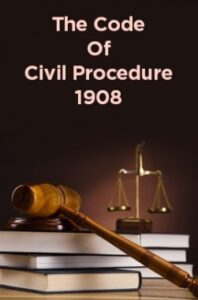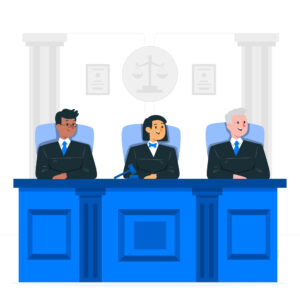ORDER XXIII RULE 1 CODE OF CIVIL PROCEURE 1908: WHETHER APPLICABLE TO PROCEEDINGS UNDER SECTION 11(6) OF THE ARBITRATION AND CONCILIATION ACT 1996
Author: Utkarsh Srivastava
Advocate-on-Record, Supreme Court of India
 This paper discusses on the applicability of the principles given under Order XXIII Rule 1 of the Code of Civil Procedure (“O23R1 CPC”) in subsequent proceedings for appointment of arbitrator under Section 11(6) of the Arbitration and Conciliation Act 1996 (“S.11(6) Arbitration /1996 Act”) after withdrawal of similar proceedings under S. 11(6) of the 1996 Act.
This paper discusses on the applicability of the principles given under Order XXIII Rule 1 of the Code of Civil Procedure (“O23R1 CPC”) in subsequent proceedings for appointment of arbitrator under Section 11(6) of the Arbitration and Conciliation Act 1996 (“S.11(6) Arbitration /1996 Act”) after withdrawal of similar proceedings under S. 11(6) of the 1996 Act.
PRINCIPLES UNDERLYING ORDER XXIII RULE 1 CODE OF CIVIL PROCEDURE 1908 (O23R1 CPC)
O23R1 CPC provides the rules for withdrawal or abandonment of a suit or part of claim.
O23R1 Sub-Rule (3) states that the court is empowered to grant permission to withdraw from a suit with liberty to institute a fresh suit in respect of the same subject matter on satisfaction of certain conditions like Formal Defect and Sufficient Grounds. Meaning that, although the court may grant permission to withdraw the suit or part of claim but such permission ought to be upon satisfaction of the court that the suit suffers from formal defect and would fail because of such defect. Or there are sufficient grounds to allow the plaintiff to institute fresh suit for the same subject matter or part of claim.
However, in addition to above, O23R1 Sub-Rule (4) provides that where the plaintiff abandons or withdraws a suit without the permission of the court, he shall be precluded from instituting a fresh suit on the same subject matter.
The term ‘Subject Matter’ has been defined by the Hon’ble Supreme Court of India in Vallabh Das v. Madan Lal (Dr.), (1970) 1 SCC 761. The judgment holds that the subject matter means the bundle of facts which have to be proved in order to entitle the plaintiff to the relief claimed by him. It further observes that where the cause of action and the relief claimed in the first suit are different from the cause of action and the relief in the second suit. Then the second suit cannot be considered to have been brought in respect of the same subject matter as the first suit.
The terms ‘Formal Defect’ and ‘Sufficient Grounds’ were discussed by the Hon’ble Supreme Court of India in V. Rajendran v, Annasamy Pandian, (2017) 5 SCC 63,
“10….Formal defect” is a defect of form prescribed by the Rules of procedure such as, want of notice under Section 80 CPC, improper valuation of the suit, insufficient court fee, confusion regarding identification of the suit property, mis-joinder of parties, failure to disclose a cause of action etc. “Formal defect” must be given a liberal meaning which connotes various kinds of defects not affecting the merits of the plea raised by either of the parties.
11. In terms of Order XXIII Rule I (3) (b) where the court is satisfied that there are sufficient grounds for allowing the plaintiff to institute a fresh suit, the Court may permit the plaintiff to withdraw the suit. In interpretation of the word “sufficient grounds”, there are two views: One view is that these grounds in clause (b) must be “ejusdem generis” with those in clause (a), that is, it must be of the same nature as the ground in clause (a) that is formal defect or at least analogous to them; and the other view was that the words “other sufficient grounds” in clause(b) should be read independent of the words a ‘formal defect’ and clause (a). Court has been given a wider discretion to allow withdrawal from suit in the interest of justice in cases where such a prayer is not covered by clause (a). Since in the present case, we are only concerned with “formal defect” envisaged under clause (a) of Rule (I) sub-rule (3), we choose not to elaborate any further on the ground contemplated under clause (b) that is “sufficient grounds”.”
In this light, Hon’ble Supreme Court has recently in M/s HPCL Bio-Fuels Ltd. v. M/s Shahji Bhanudas Bhad, 2024 INSC 851, cautioned that,
“44. The main purpose of permitting the withdrawal of a suit and its re-filing is to ensure that justice is not thwarted due to technicalities. Where permission under Order 23 Rule 1 is granted, the principle of estoppel does not operate and the principle of res judicate would also not apply. However, Order 23 Rule 1 is not intended to enable the plaintiff to get a chance to commence litigation afresh in order to avoid the results of his previous suit, or to engage in multiple proceedings with the motive of bench-hunting.
45. Order 23 Rule 2 stipulates that any fresh suit instituted on permission granted under Order 23 Rule 1 shall be governed by the law of limitation in the same manner as if the first suit had not been instituted. The object underlying this Rule is to prevent a party from misusing the liberty of filing a fresh suit for evading the limitation period governing the said suit.”
APPLICATION OF THE PRINCIPLE UNDERLYING O23R1 CPC IN SUBSEQUENT PROCEEDINGS FOR APPOINTMENT OF ARBITRATOR UNDER S.11(6) ARBITRATION AND CONCILITATION ACT 1996 AFTER WITHDRAWAL OF SIMILAR APPLICATION FOR APPOINTMENT
 Although S.11(6) proceedings are not governed by the Code of Civil Procedure in stricto sensu. However, the principles of CPC have been extended to proceedings other than suits by courts from time to time on the grounds of policy underlying the said rules of CPC.
Although S.11(6) proceedings are not governed by the Code of Civil Procedure in stricto sensu. However, the principles of CPC have been extended to proceedings other than suits by courts from time to time on the grounds of policy underlying the said rules of CPC.
The purpose behind legislation of O23R1 is that legal proceedings in respect of a subject-matter are not stretched for unduly long periods by allowing a party to reagitate the same issue over and over again, which also leads to uncertainty for the responding parties.
Similarly, Arbitration Proceedings also seek to curtail time spent by a disputing party in pursuing legal proceedings.
Therefore, Hon’ble Supreme Court in M/s HPCL Bio-Fuels Ltd. v. M/s Shahji Bhanudas Bhad (Supra) held that O23R1 can be extended to S.11(6) proceedings when the very same principles have been extended to writ proceedings and special leave petitions.
However, the bar underO23R1 is applicable to only those cases where S.11(6) application has been withdrawn earlier without permission for the same subject matter and cause of action.
The said judgment holds that,
“52. One important aspect that needs to be kept in mind while applying the principles of Order 23 Rule 1 to applications under Section 11(6) of the Act, 1996 is that it will act as a bar to only those applications which are filed subsequent to the withdrawal of a previous Section 11(6) application filed on the basis of the same cause of action. The extension of the aforesaid principle cannot be construed to mean that it bars invocation of the same arbitration clause on more than one occasion. It is possible that certain claims or disputes may arise between the parties after a tribunal has already been appointed in furtherance of an application under Section 11(6). In such a scenario, a party cannot be precluded from invoking the arbitration clause only on the ground that it had previously invoked the same arbitration clause. If the cause of action for invoking subsequent arbitration has arisen after the invocation of the first arbitration, then the application for appointment of arbitrator cannot be rejected on the ground of multiplicity alone.”
…[Emphasis Supplied]
EFFECT OF UNCONDITIONAL WITHDRAWAL OF APPLICATION UNDER S.11(6) ARBITRATION AND CONCILITATION ACT 1996
As per Section 21 of the 1996 Act, the arbitral proceedings commence on the date on which the respondent receives the petitioner’s notice invoking arbitration. Similarly, Section 43(2) of the 1996 Act provides that an arbitration shall be ‘deemed’ to have commenced on the date referred to in Section 21.
Therefore, under Section 21 the commencement of an arbitration is a notional commencement and not a factual or actual commencement of arbitration. The factual or actual arbitration proceeding commences only once an arbitrator is appointed either by the High Court under Section 11 or by consent of parties.
Thus, in M/s HPCL Bio-Fuels Ltd. v. M/s Shahji Bhanudas Bhad (Supra) it has been held that,
“65. Hence, a petition under Section 11(6) of the Act, 1996 is not a proceeding merely seeking the appointment of an arbitrator. It is in reality a proceeding for appointing an arbitrator and for commencing the actual or real arbitration proceedings.
66. If that is so, the unconditional withdrawal of a Section 11(6) petition amounts to abandoning not only the formal prayer for appointing an arbitrator but also the substantive prayer for commencing the actual arbitration proceedings. It amounts to abandoning the arbitration itself. It results in abandonment of the notional ‘arbitration proceeding’ that had commenced by virtue of Section 21 and thus amounts to an abandonment of a significant nature. Therefore, it is all the more important to import and apply the principles underlying Order 23 Rule 1 of the CPC to abandonment of applications under Section 11(6).”
…[Emphasis Supplied]
CONCLUSION
Thus, from the above discussion, it is amply clear that the principle underlying O23R1 CPC is to prevent a party from reagitating the arguments for the same cause of action and subject matter more than once, thus, cutting down time required for completion of trial and protecting the parties from getting into long litigations. On the other hand, it is also to be understood by the courts that in case of genuine formal defects and availability of sufficient grounds for refiling the suit, the plaintiff is not put to undue hardships and should be granted permission to withdraw the suits or part of claim and reagitate the same again afresh.
Similarly, the reason for legislating the 1996 Act was to cut down the long litigations between the parties. Therefore, the principle of O23R1 CPC can be applied in Arbitration Proceedings, especially Section 11(6) proceedings for appointment of an arbitrator for the same cause of action and subject matter.
Hence, in case where application under S. 11(6) of the 1996 Act has been withdrawn without the permission from the court to file such application afresh, the court should apply the principle under O23R1 CPC and not allow such an application because withdrawal of previous application without permission of the court amounts to abandonment of the substantive prayer for commencing the actual arbitration proceedings.
However, O23R1 CPC is not applicable to those cases, where the arbitration clause has been invoked again for a different cause of action and subject matter.
YOU CAN ALSO CHECK OUR ARTICLES ON: